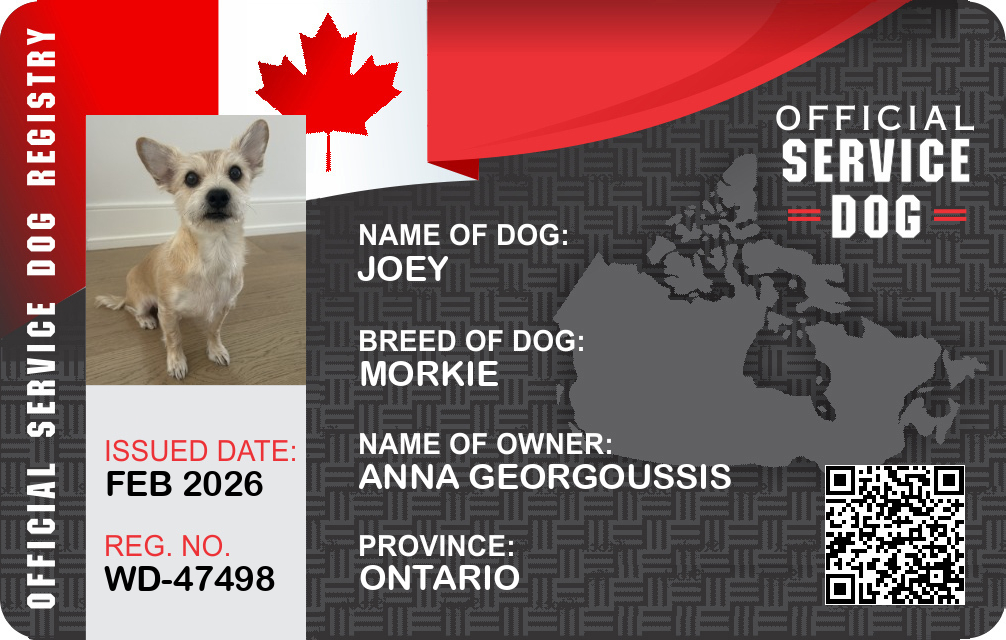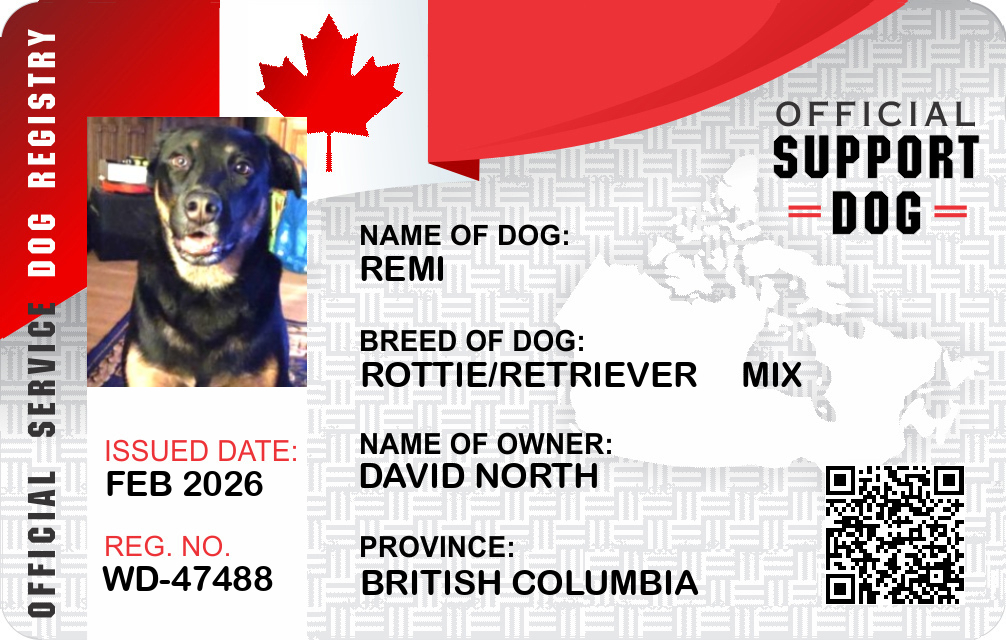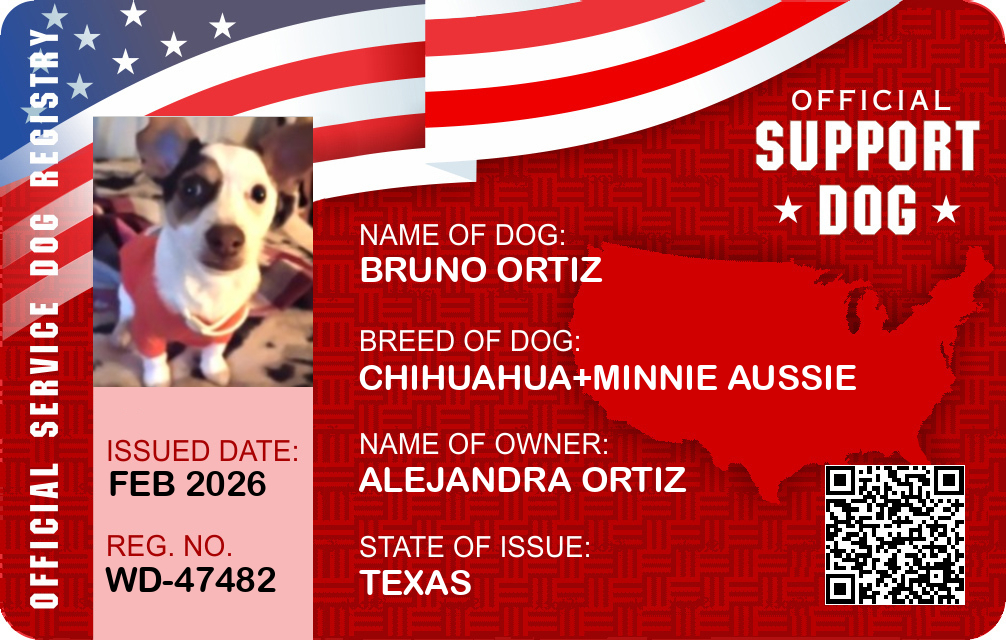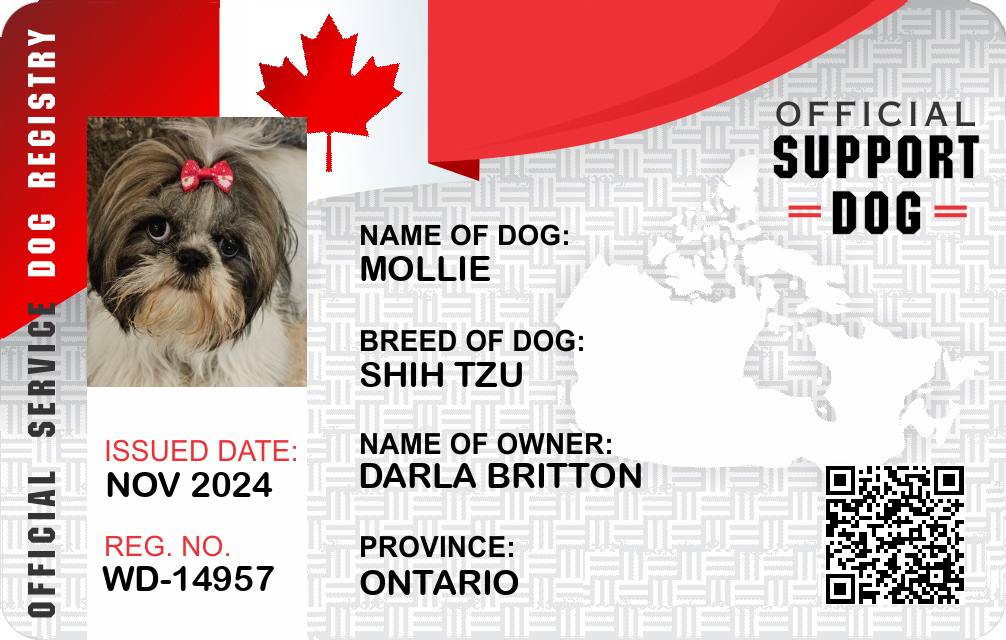Idaho Service Dog Laws
Get Your Documents
Example State Cards

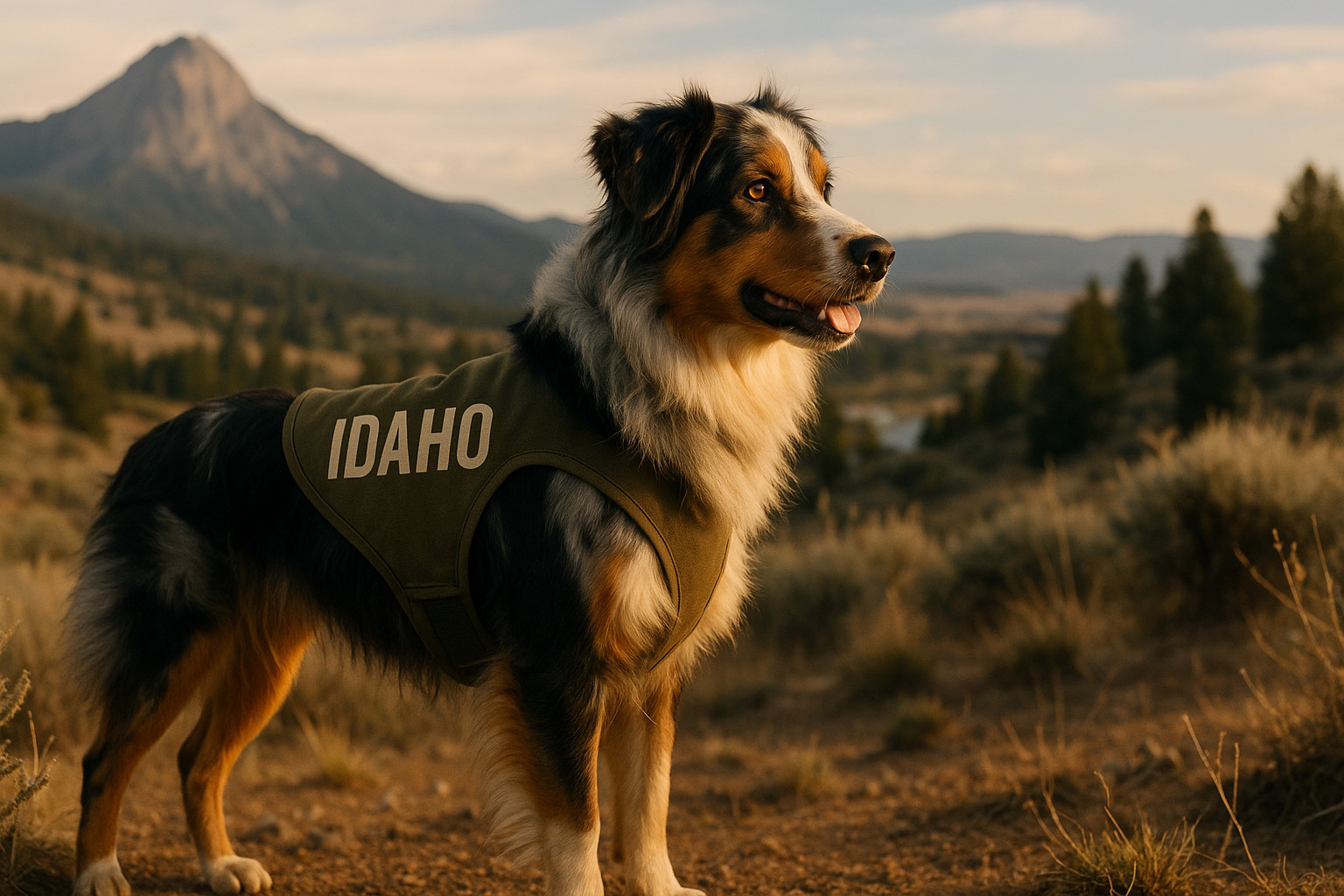
Overview of Service Dog and Legal Definitions in Idaho
What is a Service Dog?
A service dog is specifically trained to perform tasks or do work for a person with a disability. This work must be directly related to the person’s disability, assisting in ways that improve their ability to perform major life activities. Disabilities that might necessitate a service dog include, but are not limited to, visual or hearing impairments, mobility issues, seizure disorders, and certain mental health conditions such as PTSD. In Idaho, as in the rest of the United States, the legal definition of a service dog is primarily derived from the Americans with Disabilities Act (ADA), which sets a national standard for what constitutes a service animal.
How Service Dogs Differ from Other Types of Assistance Animals
Service dogs differ from other assistance animals in both function and legal protection. While emotional support animals (ESA), therapy animals, and companion animals may provide comfort and support, they are not trained to perform specific tasks aimed at mitigating a disability, which is central to the definition of a service dog. Because of this distinction, ESA do not enjoy the same public access rights under federal and Idaho state law as service dogs do, though they may have certain protections under housing laws.
Key Federal Laws Affecting Service Dogs (e.g., ADA, FHA, ACAA)
Several key federal laws impact service dogs, their handlers, and their interactions with public spaces:
- Americans with Disabilities Act (ADA): The ADA is the primary federal legislation governing the use of service dogs. This act requires that service dogs be allowed to accompany their handlers into all areas of public access, including businesses, government buildings, and non-profit organizations.
- Fair Housing Act (FHA): This act prohibits discrimination in housing and requires landlords and housing providers to make reasonable accommodations for individuals with disabilities, which includes allowing service dogs and, in many cases, ESA.
- Air Carrier Access Act (ACAA): This law ensures that individuals with disabilities can travel with their service dogs on airplanes. Airlines cannot refuse to transport service dogs and must accommodate the handlers appropriately.
State-Specific Service Dog Laws in Idaho
Idaho aligns closely with federal legislation regarding service dogs, ensuring that individuals with disabilities have full and equal access to public spaces. Idaho does not enact specific additional state legislation beyond the baseline federal standards but maintains enforcement of these standards within the state. Violations of service dog rights under these laws can lead to penalties as determined by local courts.
Housing Rights and Responsibilities
Under both the ADA and FHA, tenants in Idaho have the right to have service dogs and, under reasonable circumstances, ESA despite no-pets policies in housing complexes. Landlords must accommodate these requests without charging additional fees typically associated with pets. However, tenants can be held responsible for damage caused by the service dog.
Public Access and Accommodation
Service dog handlers in Idaho are entitled to access all public areas such as restaurants, theaters, stores, and hospitals. Under the ADA, these establishments cannot ask for proof or certification of the service dog’s status, nor can they charge extra fees for the service dog’s presence. The only permissible inquiries businesses can make are whether the dog is a service animal required due to a disability, and what work or task the dog has been trained to perform.
Transportation and Travel Rules
The ADA and the ACAA ensure that service dogs are permitted on all public and private transportation services, including taxis, buses, trains, and airplanes, without extra charge. Transportation operators in Idaho must accommodate handlers appropriately and cannot segregate them due to their service animal.
Employment and Workplace Considerations
Employers in Idaho must provide reasonable accommodations for employees with service dogs, provided that these accommodations do not impose an undue hardship on the operation of the business. The ADA prohibits employers from discriminating against employees or applicants based on their need for a service dog and requires that accommodations be made if the task performed by the service dog directly aids in mitigating the employee’s disability in the workplace.
Documentation, Requirements, and Processes in Idaho
Service Dog Documentation and Who Can Issue It
While federal and Idaho state laws do not require official certification or documentation for a service dog, having proper documentation can facilitate smoother interactions with landlords, employers, and others. Documentation might include a note from a healthcare provider indicating the need for the service dog based on the handler’s disability.
Landlord, Business, and Provider Verification Rules
When interacting with a landlord, business owner, or service provider, they can only ask two questions to verify a service animal:
- Is the dog required because of a disability?
- What work or task has the dog been trained to perform?
They cannot require medical documentation, a special identification card, or training documentation for the dog.
Rights, Limitations, and Legal Risks
Rights Service Dog Handlers Have in Idaho
Handlers in Idaho have the right to access all public accommodations without discrimination. They cannot be isolated or segregated from other patrons and should receive equal service as all others. Landlords cannot impose pet fees or deposits on service dogs, nor can they deny housing based on the presence of a service animal.
Limits on Service Dog Protections and Common Restrictions
There are certain situations where service dogs can be legally excluded. If a service dog is out of control and the handler does not take effective action to control it, the dog can be asked to leave. Likewise, if the service dog is not housebroken, the establishment can request that the dog be removed. However, in both scenarios, the handler must still be offered the opportunity to obtain services or goods without having the animal on the premises.
Penalties for Fraud or Misrepresentation
Misrepresentation of a pet as a service dog is illegal. In Idaho, individuals who fraudulently claim that their pet is a service dog can face fines and legal action. Practices aimed at misrepresenting a service animal undermine the legitimacy and trust in true service animals and their handlers.
Practical Guidance for Service Dog Handlers in Idaho
How to Qualify for a Service Dog Legitimately
Qualification for a service dog in Idaho involves having a disability recognized under the ADA where a service dog can effectively assist in mitigating that disability. Prospective handlers should consult healthcare providers to assess the practicality and benefits of a service dog to their condition. Legitimate training from reputable organizations or trainers is crucial for the service dog to perform necessary tasks efficiently.
How to Talk to Landlords, Airlines, and Employers
- Landlords: Clearly explain your rights under the FHA and provide any recommended documentation from your healthcare provider about the necessity of the service dog. Politely emphasize the distinction between a pet and a service animal.
- Airlines: Communicate in advance of your travel to confirm procedures outlined under the ACAA and have relevant documentation ready if necessary.
- Employers: Discuss the specific tasks or functions your service dog performs to support your job duties and negotiate any reasonable accommodations you might need.
Summary of Service Dog Laws in Idaho
In Idaho, service dog handlers are protected under federal laws with specific accommodations in public areas, housing, employment, and travel. While Idaho adheres primarily to federal guidelines, understanding these rights and the fine lines between service dogs and other animals, such as ESA, is crucial for compliance and full enjoyment of these rights.
Summary Table of Key Rights and Limitations for Service Dogs in Idaho:
- Rights:
- Access to public spaces
- Housing accommodations without pet fees
- Travel on public transportation and airlines without additional cost
- Employment protection and reasonable workplace accommodations
- Limitations:
- Dog must be under handler control
- Exclusion if the dog is not housebroken or poses a threat
- Legal Risks:
- Fines for misrepresentation
- Potential removal from premises for rule violations
Handlers should maintain clear documentation and communication to ensure smooth acknowledgment of their rights across various sectors.
Get Your Documents
Example State Cards





